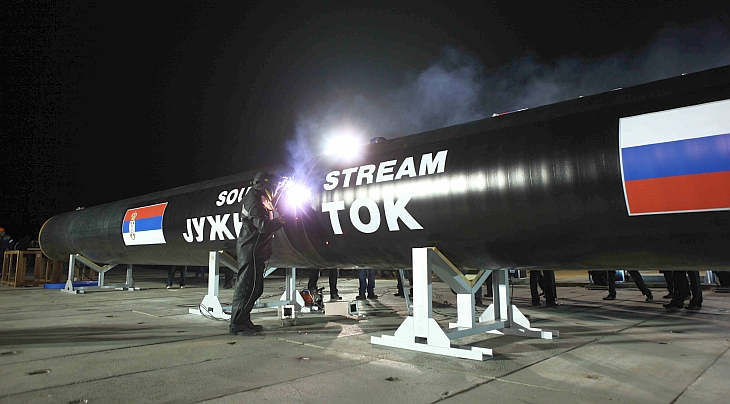Hungary’s parliament approved a law that would open the way for the construction of the Russian-backed South Stream natural gas pipeline, Prime Minister Viktor Orban’s latest show of defiance toward the European Union, according to Bloomberg.
Lawmakers approved an amendment allowing a company to construct a gas pipeline even if it doesn’t have the licenses needed to operate it, according to parliament’s website. The legislature, where Orban wields a two-thirds majority, voted 132 to 35 in favor.
“This is meant to give a boost to South Stream and is to show Russia that Hungary is taking the project seriously,” Attila Holoda, an expert on energy regulation who served under Orban as assistant state secretary in 2012, said by phone.
Hungary is seeking to start construction of the pipeline aimed at circumventing Ukraine within six months, Csaba Baji, head of state-owned MVM Zrt., which set up a joint venture with OAO Gazprom (GAZP) to build and operate the pipeline, said in an Oct. 27 interview with the Napi Gazdasag newspaper. The new company doesn’t have an operating permit. The EU has blocked South Stream and imposed economic sanctions on Russia along with the U.S. over Vladimir Putin’s actions in Ukraine.
South Stream is “extraordinarily important” for Hungary because it enhances the security of gas supplies to the country, Janos Lazar, the Minister in Charge of the Prime Minister’s Office, told reporters Oct. 22.
The proposed 2,446-kilometer (1,520 miles) pipeline would carry Russian gas under the Black Sea, offering an alternative route to Europe without diversifying the source. Designed to deliver 63 billion cubic meters of gas a year, South Stream would run across Bulgaria, Serbia, Hungary and Slovenia before entering Italy, according to its website. Four of those nations are EU members, while Serbia is seeking to join.
The project would end Gazprom’s dependence on Ukraine’s gas-transit system. The EU and the U.S. pressured Bulgaria to stop construction in June.
Orban’s backing of South Stream is the latest initiative to strain his nation’s EU and NATO ties. In January, Hungary handed a contract to expand the country’s only nuclear plant to Russia and took out a 10 billion-euro ($12.5 billion) loan from Moscow. In July, Orban, who was re-elected in April to a four-year term, said he’s seeking to establish an “illiberal state” within the EU, listing Putin among possible models to emulate.
